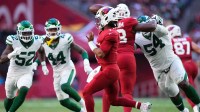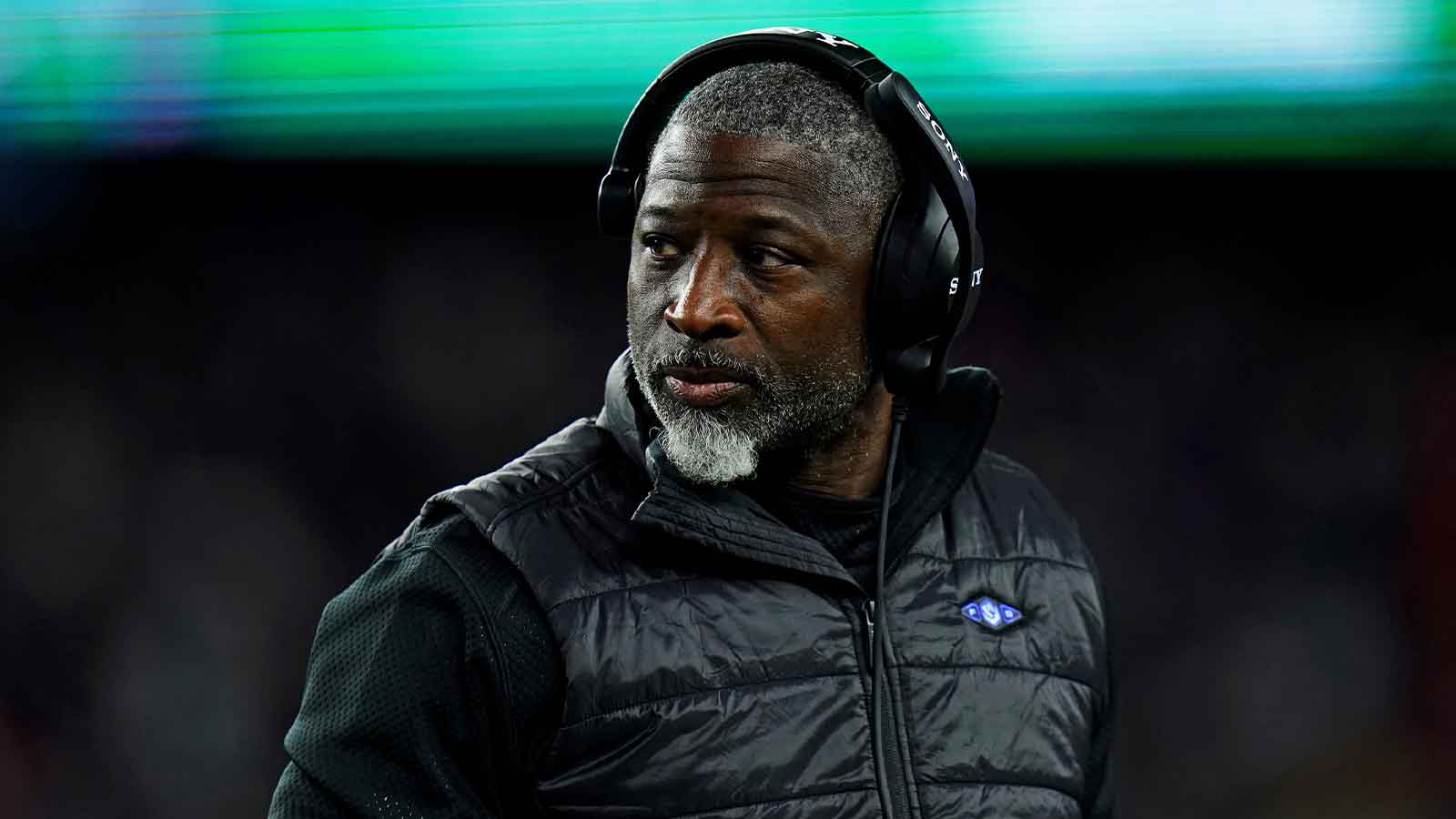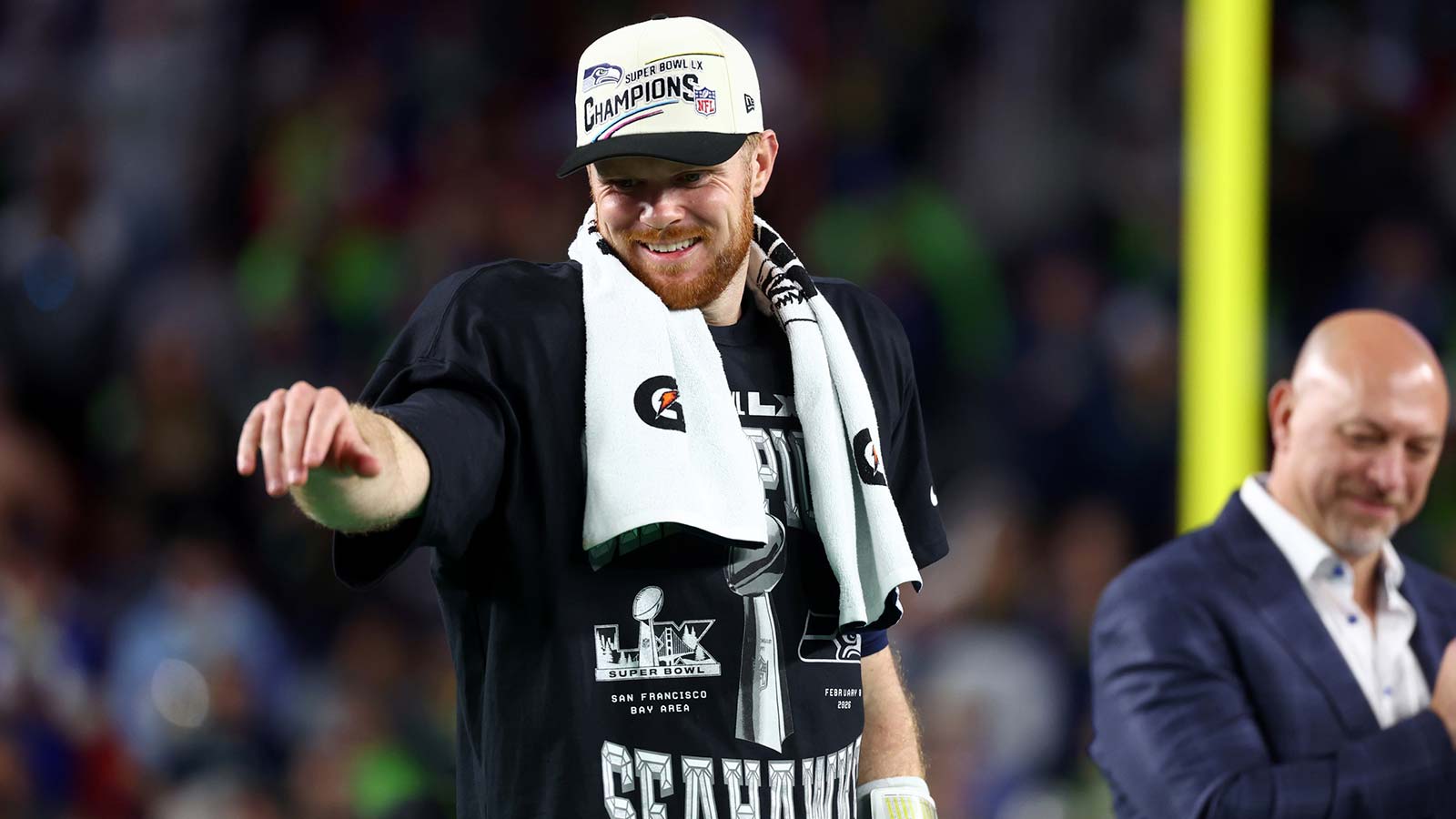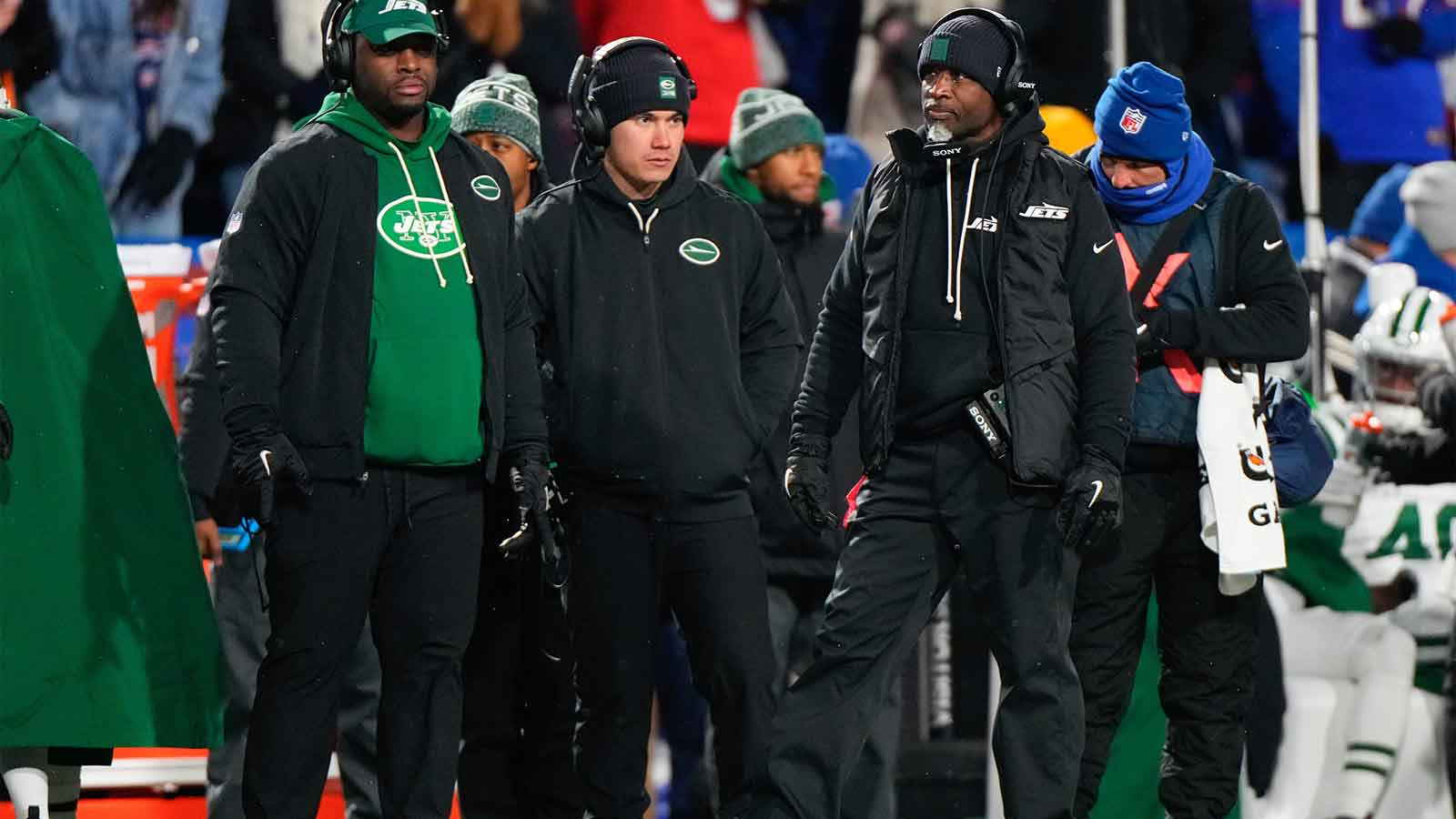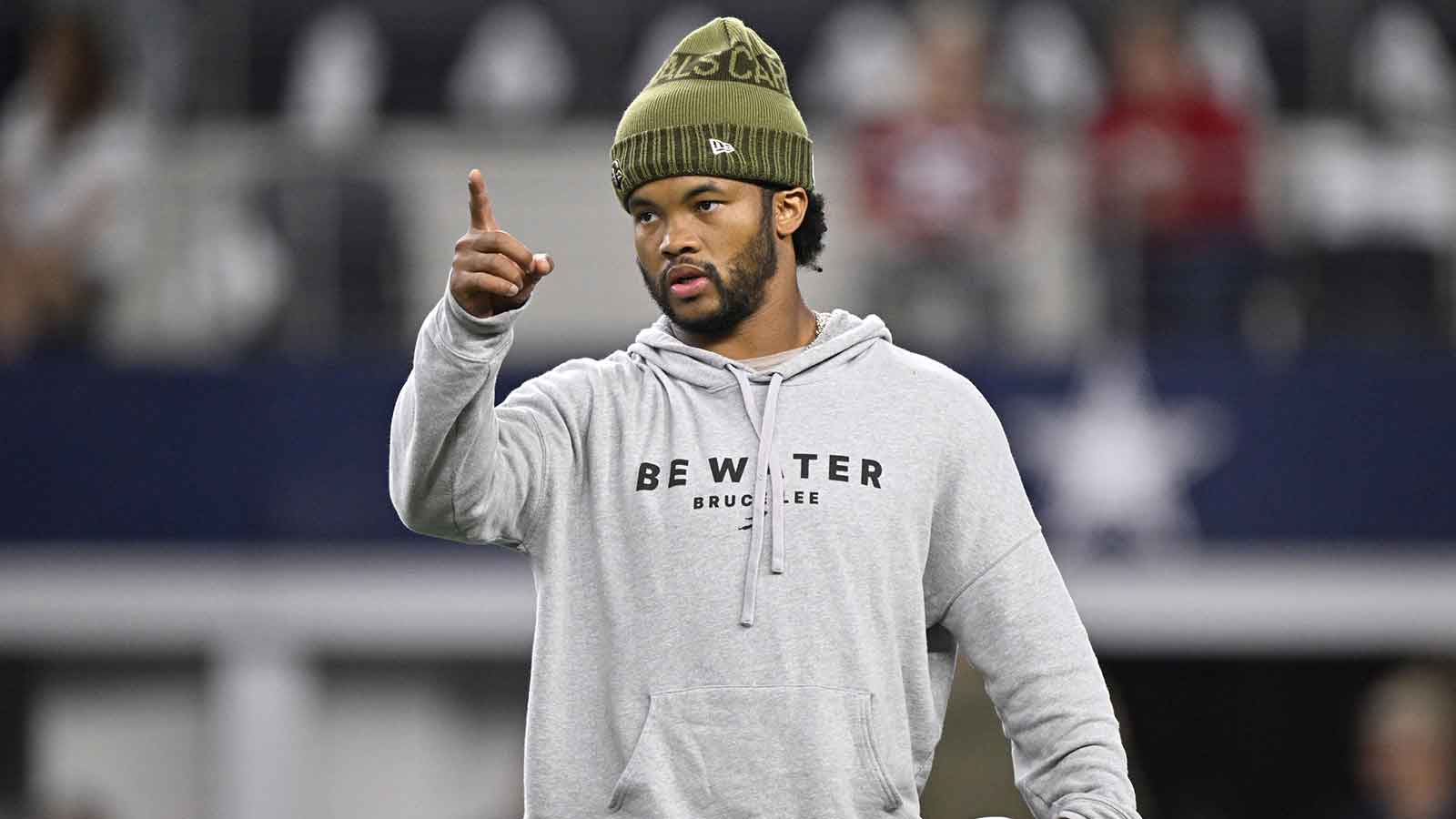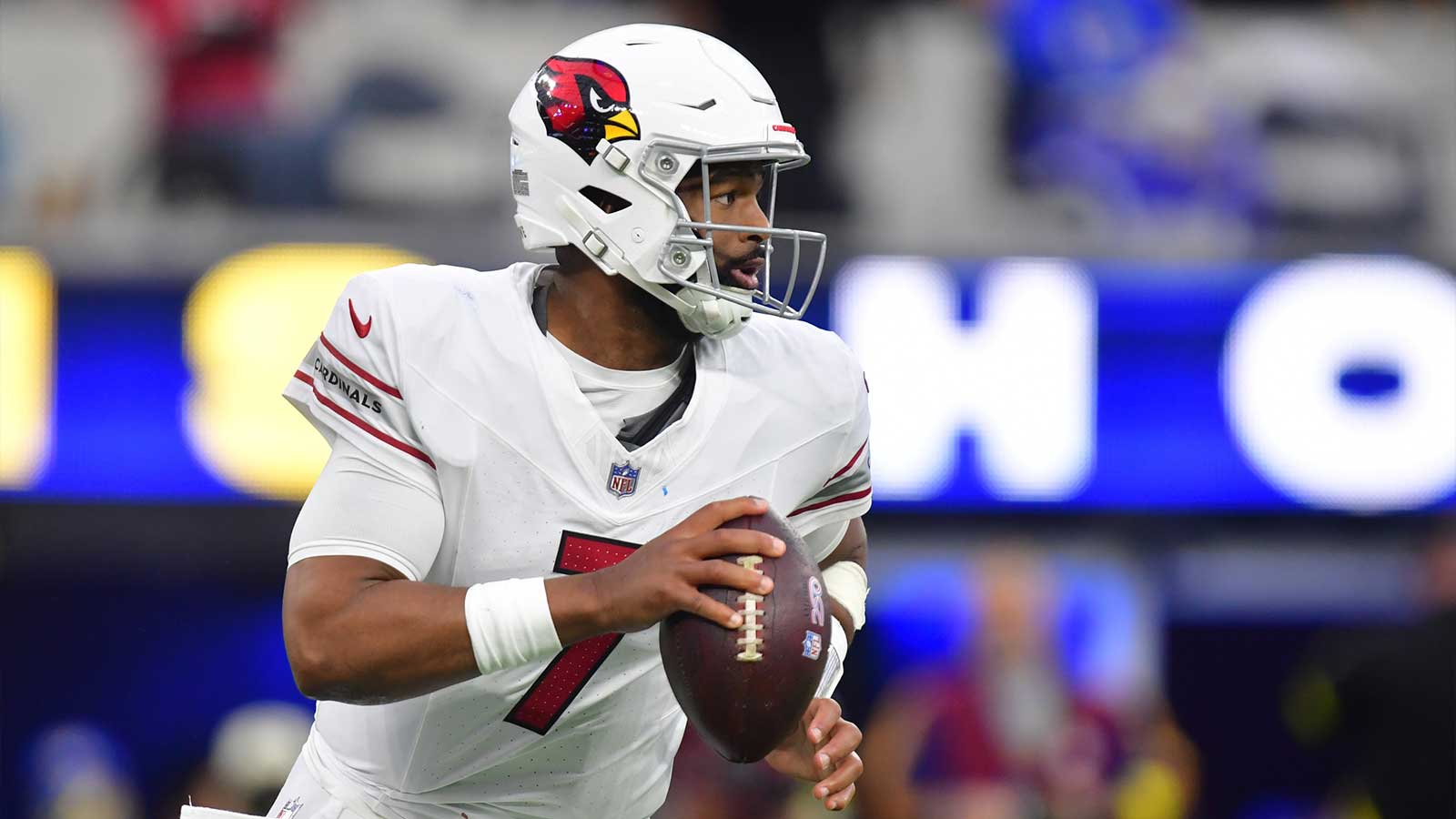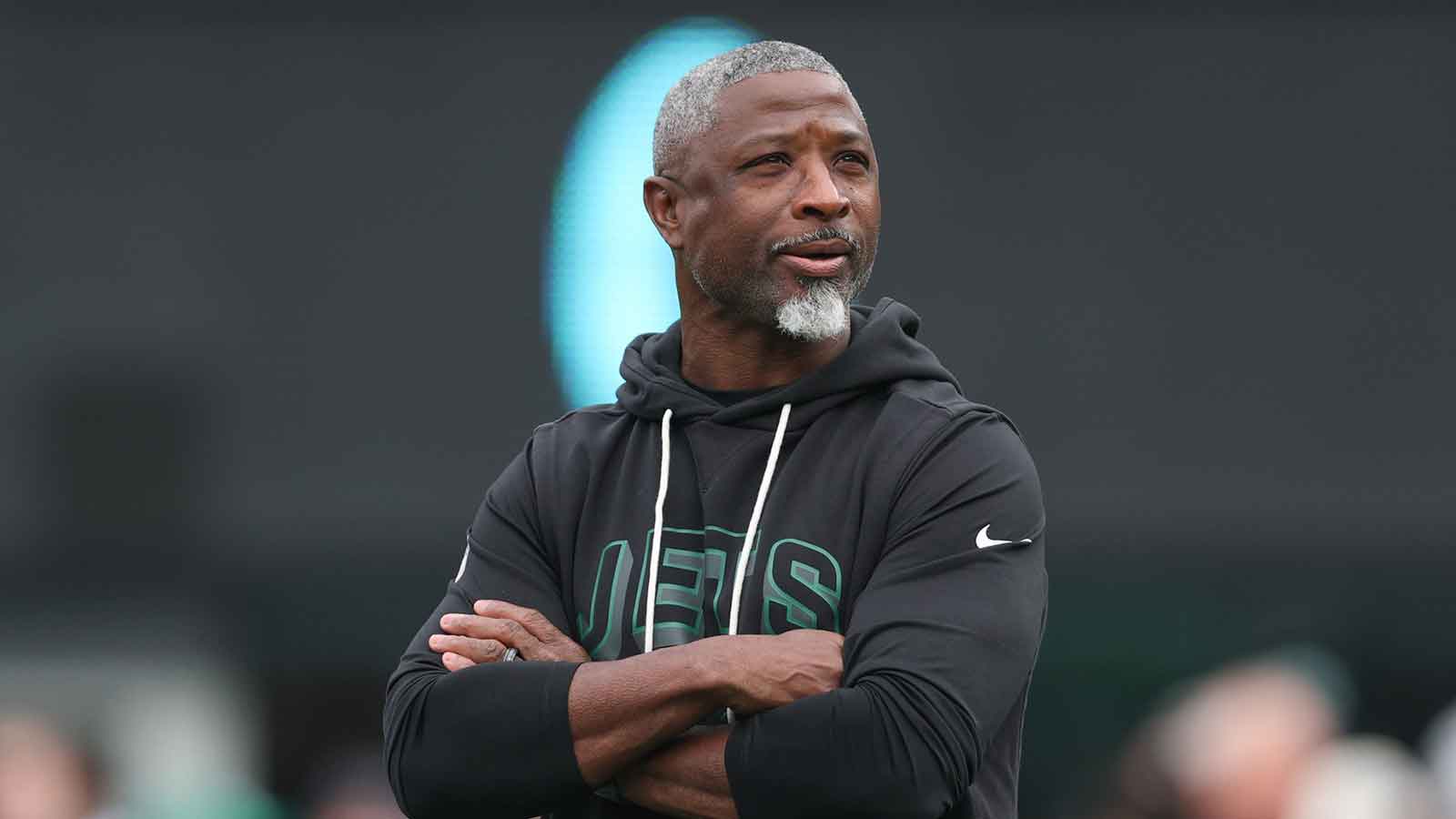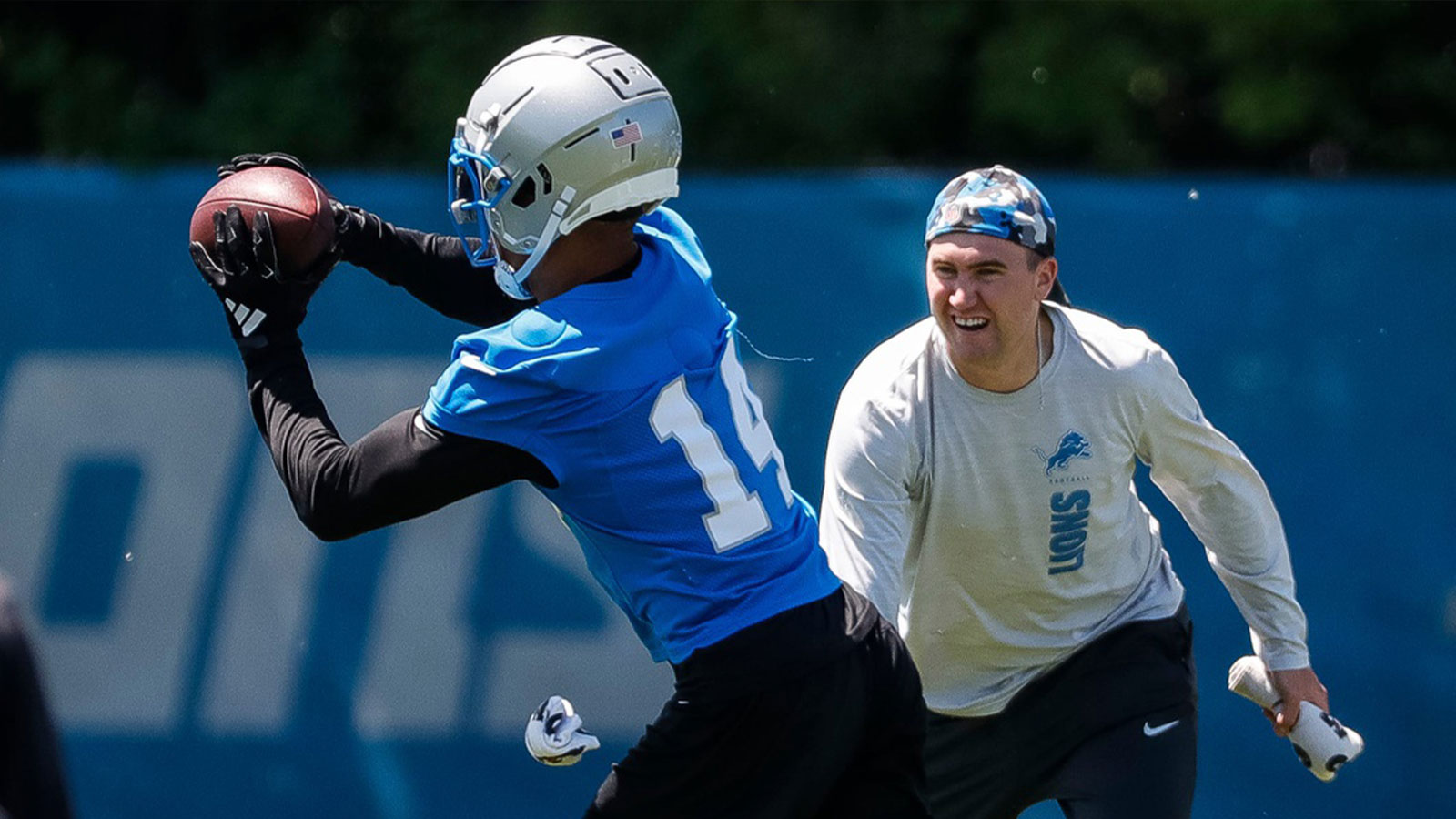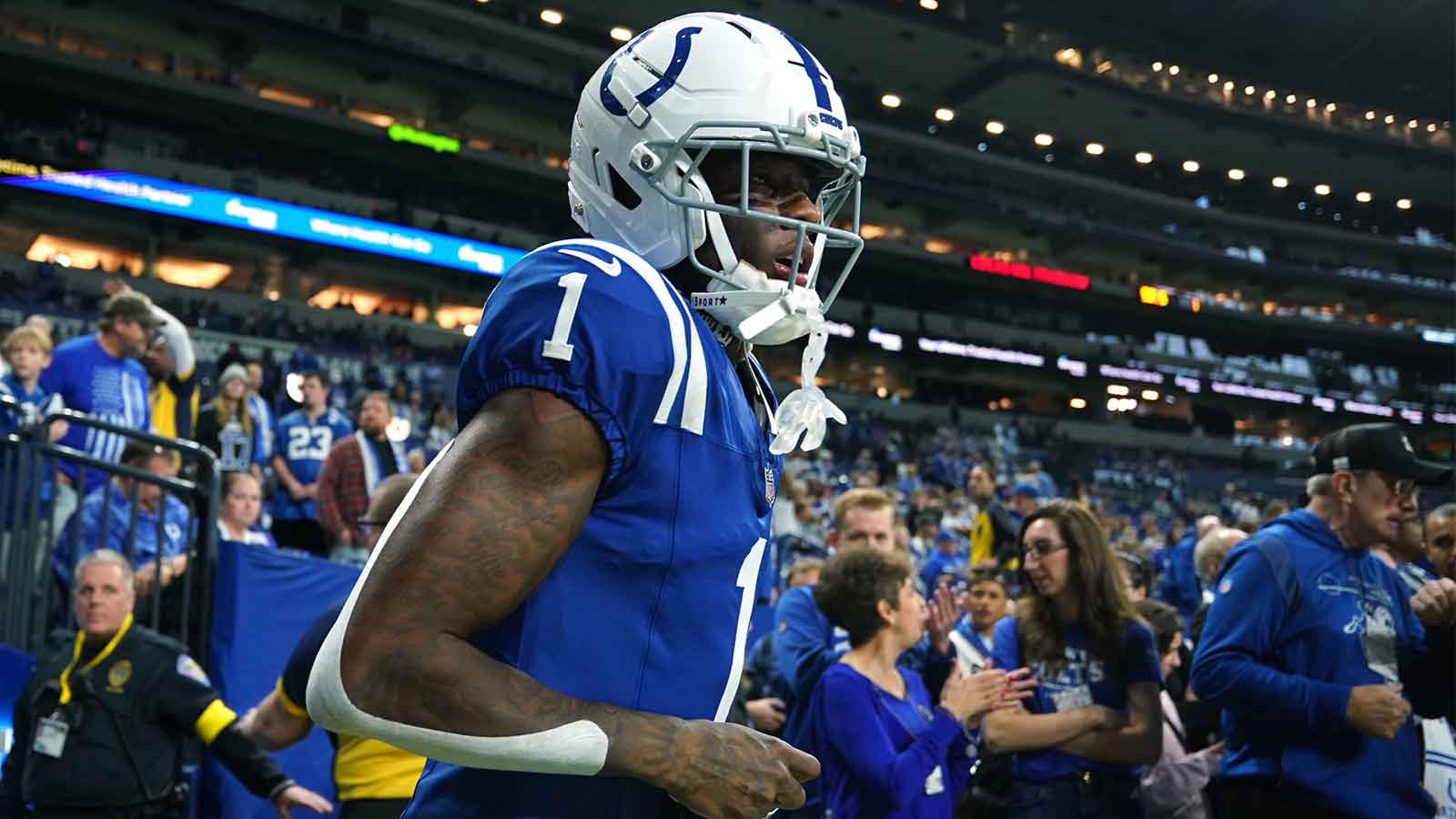The New York Jets finally landed their quarterback Monday, acquiring Aaron Rodgers in a massive trade with the Green Bay Packers. Mission accomplished.
The much-anticipated deal is being scrutinized from all angles, but it’s fair to say both the Jets and Packers are happy the Rodgers trade has been finalized and each team can now move on. That’s especially important with the 2023 NFL Draft beginning Thursday.
Trade compensation, per sources:
Jets get:
🏈Aaron Rodgers, pick No. 15, a 2023 5th-rd pick (No. 170).Packers get:
🏈Pick No. 13, a 2023 2nd-rd pick (No. 42), a 6th-rd pick (No. 207), a conditional 2024 2nd-rd pick that becomes a 1st if Rodgers plays 65 percent of the plays. pic.twitter.com/Q2vUMfyZGH— Adam Schefter (@AdamSchefter) April 24, 2023
Though neither team has confirmed trade specifics, it’s been widely reported that the Jets will receive Rodgers, the No. 15 overall pick in this year’s draft and a fifth-round pick in 2023 (No. 170). The Packers receive the No. 13 pick this year in a swap of first-round choices, the No. 42 (second round) and 207 (sixth round) picks this year and a conditional second-round pick next season. That pick becomes the Jets first-round selection should Rodgers play 65 percent of their offensive snaps this season.
That said, let’s examine why the Jets won the Aaron Rodgers trade with the Packers.
Jets acquired Aaron Rodgers after not having a Plan B at quarterback
The Jets were simply all in on acquiring the 39-year-old future Hall of Famer. So much so that, despite a flirtation with free agent Derek Carr, they never had a solid secondary option to play quarterback in 2023.
So, the Jets had to get this trade done. Either that or worry about Zach Wilson being under center as QB1 again.
That they got the trade done without an alternative nor being fleeced by the Packers is a coup for general manager Joe Douglas. The Packers didn’t want Rodgers around anymore, but trade or no trade, Jordan Love was taking over at quarterback. They had the Jets backed into a corner.
Swapping first-round picks is a minor win for Green Bay, but one that doesn’t hurt New York. Moving back to No. 15 from 13 shouldn’t impact the Jets' quest to select one of the top three offensive tackles in the draft. And if Peter Skoronski, Paris Johnson Jr. nor Broderick Jones are available at 15, don’t discount Douglas trading back to possibly select Tennessee tackle Darnell Wright while adding a Day 2 pick to their depleted pool of picks.
This year’s second round pick was expected to be part of the trade all along. The risk in having next season’s second-rounder becoming a first-round pick is mitigated by the fact that if Rodgers plays 65 percent of the offensive snaps this season, it likely means things are going well for the Jets. If Rodgers plays well and helps the Jets reach the playoffs — and make a run — then dealing their first-round pick in 2024 is a worthwhile price to pay.
— New York Jets (@nyjets) April 24, 2023
Oh, and did we emphasize that Aaron Rodgers is now the Jets quarterback? That’s pretty surreal. Even if his play has slipped some, he’s two years removed from being League MVP and is a massive upgrade over Wilson. Not to mention how much acquiring Rodgers fired up his new teammates and fan base.
The timing of the Rodgers trade greatly benefits New York
Both teams benefit from the trade happening before the draft begins Thursday. But it was vital for the Jets to get this done and have Rodgers take part in the offseason program to begin building chemistry with his new teammates, including weapons like Garrett Wilson, Mecole Hardman, Corey Davis, Tyler Conklin, Breece Hall and old friend Allen Lazard.
Had this dragged on past the draft, with the Packers having no pressure point to make a trade, the Jets would have been in a bad place. Wilson would be getting all the first-team reps and a cloud of uncertainty would be hanging over the Jets.
Making the trade now also gives Douglas time to not only assess which players the Jets could select this weekend in the draft, but which teams could be possible trade partners. It’s hard to imagine Douglas won’t try and swing another trade to add Day 2 or 3 picks. Knowing exactly where the Jets stand now, with what picks they have, is a big deal for the GM.
Plus, Douglas can turn his attention to signing stud defensive lineman Quinnen Williams to a contract extension now that the GM knows what the Jets financial landscape is.
Aaron Rodgers will cost Jets a lot of money, but make them even more
From a business perspective, the Rodgers trade is a massive win for New York. Making the deal now gives the organization maximum time to market its new-look team and star quarterback.
From ticket sales to merchandise sales to sponsorship dollars and ticket revenue, the Jets are going to benefit financially from this trade. Sure, Rodgers is due nearly $60 million this season (though reportedly they could be reworking his contract before the deal is finalized), but the Jets will blow past that number in new revenue generated.
.@Connor_J_Hughes on Aaron Rodgers' contract: "That contract is going to be reworked. One of the guys I touched base with said 'hey look, we gave up a lot, but wait until you see the reworked contract"@ConnorJRogers @JeaneCoakley https://t.co/lW1J1sy6NV pic.twitter.com/gRkNKW7b9j
— Jets Videos (@snyjets) April 24, 2023
The NFL spotlight is on the Jets now, so expect them to receive max exposure when the primetime TV schedule comes out. That also translates into ticket sales and marketing dollars. They’ve gone from “Same Old Jets” to a sexy, hot commodity in the NFL.
Now that the trade is done, the Jets can begin cashing in financially.
It’ll be up to Rodgers and his new team to see if they’ll have as much success on the field, making the playoffs for the first time in 13 seasons or, perhaps, even appearing in the Super Bowl for the first time since 1969.
As of today, this is a good trade for both the Jets and Packers. But it’s most definitely a win for the Jets.







